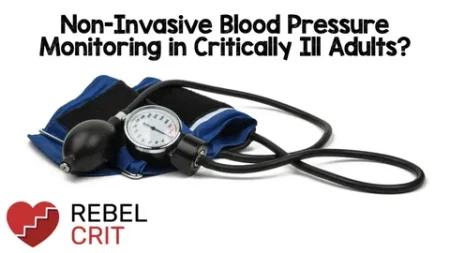Introduction
Collagen is one of the most popular supplements for skin elasticity, joint health, and gut function. But with growing concerns over heavy metal contamination, it’s important to know how collagen powders are tested for purity, quality, and safety.
Many consumers blindly trust labels, but not all collagen powders are free from toxins. The only way to ensure safety is through scientific testing and third-party verification.
In this guide, we’ll explore:
✔ Why collagen purity matters
✔ How collagen is tested for heavy metals and contaminants
✔ What third-party testing and certifications to look for
✔ How to read lab reports and avoid unsafe collagen products
By the end, you’ll know how to choose a pure, heavy metal-free collagen powder backed by scientific testing.
1. Why Collagen Purity Matters
Collagen supplements are sourced from animal by-products (bones, skin, and connective tissue), which can contain:
❌ Heavy metals (lead, mercury, arsenic, cadmium)
❌ Pesticides and herbicides
❌ Hormones and antibiotics
❌ Microbial contamination (bacteria, mold, fungi)
Since these contaminants can accumulate in the body over time, choosing a tested, pure collagen supplement is critical for long-term health and safety.
2. How Is Collagen Tested for Purity and Heavy Metals?
Collagen manufacturers use scientific testing methods to ensure their products are free from harmful contaminants. Here’s how:
🔬 1. Heavy Metal Testing (ICP-MS & ICP-OES)
(Tests for Lead, Arsenic, Mercury, and Cadmium)
✔ Uses Inductively Coupled Plasma Mass Spectrometry (ICP-MS) or Inductively Coupled Plasma Optical Emission Spectrometry (ICP-OES).
✔ Can detect even tiny traces of heavy metals in collagen powders.
✔ Compares results to FDA and European Union safety standards.
How to Verify: Look for third-party lab reports that confirm collagen contains non-detectable (ND) levels of heavy metals.
🦠 2. Microbial & Bacteria Testing
(Tests for Harmful Bacteria, Mold, and Pathogens)
✔ Ensures collagen is free from Salmonella, E. coli, and other harmful bacteria.
✔ Uses PCR testing and plate culture analysis.
✔ Important for raw collagen products that are not heat-treated.
How to Verify: Look for products that state “Microbial & Pathogen-Free” on their labels or lab reports.
🧪 3. Pesticide & Herbicide Testing (GC-MS & LC-MS)
(Tests for Chemicals Used in Animal Feed or Farming)
✔ Uses Gas Chromatography-Mass Spectrometry (GC-MS) or Liquid Chromatography-Mass Spectrometry (LC-MS).
✔ Detects pesticides, herbicides, and fungicides in animal-derived collagen.
✔ Essential for grass-fed bovine collagen and marine collagen from farmed fish.
How to Verify: Choose organic or grass-fed collagen that is certified pesticide-free.
🔬 4. Protein Purity & Amino Acid Profiling
(Tests for Collagen Content & Bioavailability)
✔ Measures total protein content (should be 90%+ hydrolyzed collagen).
✔ Identifies essential amino acids (glycine, proline, hydroxyproline, etc.).
✔ Ensures collagen contains no fillers or synthetic additives.
How to Verify: Check if the Certificate of Analysis (COA) lists the amino acid profile and protein percentage.
🧪 5. pH & Solubility Testing
(Ensures Collagen Mixes Easily & Stays Stable in Liquid)
✔ Tests how well collagen dissolves in hot and cold liquids.
✔ Ensures collagen maintains its pH balance and bioavailability.
✔ Important for hydrolyzed collagen peptides, which should fully dissolve without clumping.
How to Verify:
- Look for terms like “high solubility” or “easily dissolves in hot and cold liquids”.
- Avoid products that clump excessively or form gelatin-like textures in water.
3. How to Read a Collagen Certificate of Analysis (COA)
A Certificate of Analysis (COA) is a third-party lab report that verifies a collagen supplement is pure and free from contaminants.
Key Sections of a COA:
📌 Heavy Metal Levels: Should list ND (Non-Detectable) or below legal limits for lead, mercury, arsenic, and cadmium.
📌 Microbial Testing: Should show 0 CFU/g for E. coli, Salmonella, and mold.
📌 Protein & Amino Acid Profile: Should list glycine, proline, hydroxyproline levels.
📌 Pesticide Residue Testing: Should confirm free from harmful chemicals.
How to Verify:
✔ Request a COA from the brand’s website or customer service.
✔ If a company refuses to share lab results, it may not be safe.
4. What Third-Party Certifications Ensure Collagen Purity?
Choosing a third-party tested collagen powder ensures the highest safety standards.
Look for These Certifications:
✔ NSF Certified for Sport → Guarantees no heavy metals or banned substances.
✔ USP Verified → Ensures the product contains pure, high-quality ingredients.
✔ Informed-Choice Certified → Independently tested for contaminants.
✔ GMP (Good Manufacturing Practices) Certified → Verifies safe production standards.
🔹 Pro Tip: Brands that publish their COA and certifications are the most trustworthy.
5. Final Thoughts: How to Ensure Your Collagen Powder Is Pure
✔ Heavy metals and contaminants can be found in low-quality collagen powders.
✔ Third-party testing is the gold standard for ensuring purity and safety.
✔ Choose collagen brands that provide a Certificate of Analysis (COA).
✔ Look for NSF, USP, and Informed-Choice certifications for guaranteed purity.
✔ Always buy grass-fed bovine or wild-caught marine collagen for the cleanest sources.
By following these steps, you can confidently choose a pure, heavy metal-free collagen supplement for better health and wellness.








